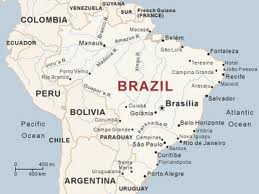Invest Brazil
In the first article of a new series on emerging economies, Craig O’Mahoney explores the economic potential of Brazil…
As the global economic crisis is still looming economists and stockbrokers discuss the importance of the new emerging economic regions of the BRIC nations (Brazil, Russia, India and China). Within this four series instalment we will first look at the advantages of investing in Brazil and the long term benefits it has.
Investment Director, Victor Arakaki from HSBC Global Asset Management outlined recently why Brazil is becoming ever more attractive to invest in. Firstly it is important to note that Brazil has overlapped the UK in becoming the sixth largest economy. The economies above it are the US, China, Japan, Germany and France. Brazil is now Latin America’s largest economy due to a vast quantity of natural resources and an aspiring wealthy middle class.
Secondly this leads us onto the legacy of President Luiz Inácio Lula de Silva who was elected in 2002 and re-elected in 2006 introduced the view of transforming Brazil from the association of vast poverty and shanti towns in the 1980s to a new country of economic prosperity. President Lula de Silva is focusing on reducing inequalities through job creation, providing citizens with better credit access, improving the minimum wage and developing more effective social programmes like Bolsa Família (Family Welfare Payment).
Thirdly it is important for investors to recognise the rich quantity of commodities accessible within Brazil. Its vast landscape has metals, oil, minerals and agricultural products and is one of the largest producers and exporters of iron ore, nickel, aluminium, coffee, meat, poultry, soy and sugar. This results in Brazil not having to depend on exports, with exports accounting for 10% of GDP in 2010 and projected to reach 11-12% in 2012.
Finally a large quantity of money is being injected into the Growth Acceleration Plan (PAC-2), Sporting events and Deep Water Oil Reserves. According to the Brazilian Ministry of Planning the Growth Acceleration Plan will have a total investment of BRL 955m (£357m) between 2011- 2014. This money is focused on the areas that President Lula de Silva wants to improve as discussed earlier. The Sport Ministry is expecting investment for the Football World Cup in 2014 and the Olympic Games in 2016 that will equal BRL 47bn (£17.5bn) up until 2014 with BRL 33bn (£12.3bn) of that capital being targeted towards infrastructure.
It is also vital that the Brazilian government focuses the investment of infrastructure appropriately by identifying the long term implications that the 2014 World Cup and 2016 Olympic Games can have. For example the infrastructure put in place for the Olympic Village which will house the Olympians in 2016 should be designed to act as future homes for the poor and aspiring classes when the Olympics is finished. The team behind the development of the London 2012 Olympics are implementing this positive and sustainable way of thinking for the future.
Collectively this results in Brazil having a positive investment appeal for the future. For example with the World’s biggest sporting events in the pipeline major companies will be identifying the attractiveness of Brazil within the next several years. Industries like the automotive industry are having key players like Volkswagen and Toyota battling it out for market leader by trying to secure official contracts for the World Cup and Olympic Games in Brazil. This will increase their chances of tapping into the aspiring consumer base that President Lula de Silva is developing.



Posted on February 24, 2012
0